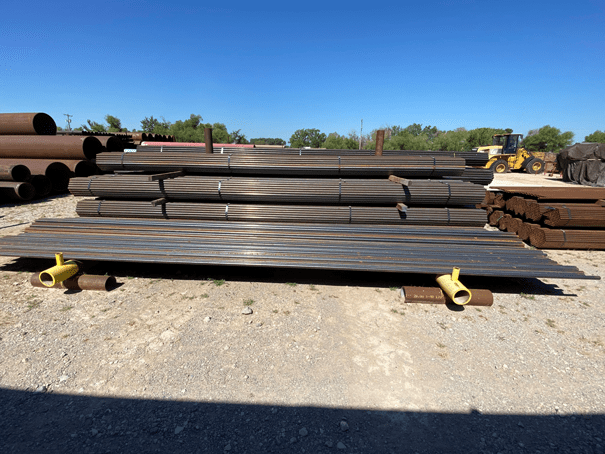Oil Pipes vs. Gas Pipes: The Ultimate Pipe-down Showdown

Oil and gas transportation is vital in many industries worldwide, requiring specialized pipes that can handle high pressure, resist corrosion and meet environmental standards. Industrial pipe suppliers say it’s crucial to understand the differences between oil pipes and gas pipes. Every aspect of these pipes differs from composition to treatment, making selecting the suitable pipe essential.
Let’s dive deep into the differences between oil and gas pipes, discussing their pressure handling capabilities, corrosion resistance, treatment methods and installation process. By the end of this post, you’ll better understand the nuances between oil and gas pipes, helping you make informed decisions when selecting pipes for your industrial needs.
Ingredients for Success: What Goes Into Making the Perfect Pipe?
- The composition of oil and gas pipes differs based on the type of material used.
- Oil pipes are composed of carbon steel, which can withstand high-pressure environments and harsh temperatures.
- In contrast, gas pipes are made of steel and plastic, making them more flexible and resistant to stress cracking.
- Understanding these differences in the material composition is crucial for both you and industrial pipe suppliers to ensure they provide the correct type of pipe for the intended application.
Under Pressure: How to Keep Your Pipes from Blowing Their Top
- Oil pipes and gas pipes operate under different pressure conditions.
- Some of the best industrial pipe suppliers design oil pipes to handle high-pressure environments while designing gas pipes to withstand relatively lower-pressure environments.
- You must consider the pressure requirements when selecting pipes for your clients. The correct pressure rating is essential for safety reasons and to ensure the pipes perform as expected.
Rust Never Sleeps: How to Keep Your Pipes in Prime Condition
- Corrosion is a significant concern when dealing with oil and gas pipes.
- Oil and gas transportation requires pipes to resist corrosion, especially when exposed to harsh environments.
- Oil pipes are more susceptible to corrosion because of the acidic nature of oil. These pipes undergo a coating process, which adds a layer of protection to the steel to prevent corrosion.
- On the other hand, gas pipes are less prone to corrosion due to the lower acidity levels. However, they still undergo corrosion treatment to prevent any potential corrosion.
Pipe Dreams: The Top Treatments by Industrial Pipe Suppliers to Keep Your Pipes Flowing Smoothly
- The treatment methods for oil and gas pipes are different.
- The coating process adds a protective layer to the steel of oil pipes. This process ensures the pipes remain corrosion-free and durable, even in harsh conditions.
- On the other hand, gas pipes undergo treatment to prevent the potential for corrosion. This treatment typically involves the application of a corrosion inhibitor to the surface of the pipe.
Understanding the Ins and Outs of Pipe Installation
- The installation process for oil and gas pipes varies due to pressure handling and corrosion resistance differences.
- For example, oil pipes require a more rigorous installation process to handle the high pressure, including special welding techniques and strict adherence to safety regulations.
- In contrast, various techniques, including threading, flanging and welding, allow for the installation of gas pipes with greater flexibility.
- To ensure the proper installation of the pipes, you must understand these installation differences.
Eco-Friendly Pipes for a Greener Tomorrow: How to Transport Oil and Gas Safely
- Oil and gas transportation has significant environmental considerations that industrial pipe suppliers must consider.
- For example, leaks from oil pipes can lead to environmental disasters and gas leaks can lead to explosions and fires.
- As a result, both types of pipes must undergo strict testing and quality control measures to ensure they meet environmental standards.
- Industrial pipe suppliers usually know these environmental considerations and provide pipes designed to minimize the environmental impact.
Get Your Pipes from Bison Pipe Today!
Bison Pipe, one of the leading pipe suppliers, understands the importance of selecting suitable pipes for each application. Our team of experts can assist in selecting the appropriate pipe for any industrial application. We offer various oil and gas pipes that meet industry standards and specifications.
